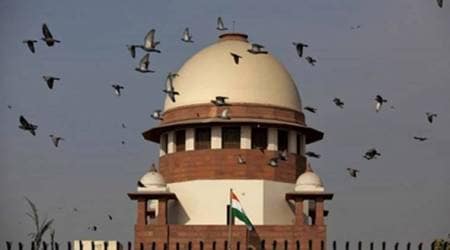 Chief Minister Arvind Kejriwal (File Photo)
Chief Minister Arvind Kejriwal (File Photo)
After a quick shower at 5 am, Geeta (49) packed an unusually big meal — a container of aloo curry, 10 rotis, some raw onions and a water bottle — before leaving home in Janakpuri. She had to reach Chief Minister Arvind Kejriwal’s residence in Civil Lines by 9 am. The food and water were meant to last eight hours — the time she would spend protesting outside the CM’s house alongside hundreds of anganwadi workers and helpers. Since July 3, anganwadi workers in Delhi have been raising slogans and demanding an increase in their monthly salary, insurance and pension after retirement. They also want to be covered under labour laws. “I earn Rs 5,000 a month, which is not enough even for ration. I haven’t been paid for the last four months. This protest is turning out to be expensive — I spend a lot of money commuting every day,” said Meenu (38), who brought with her a box full of homemade dhokla.
Addressing a press conference, President of Delhi State Anganwadi Workers and Helpers Union, Shivani Kaul, reiterated that “the CM has not spoken to the Union, and no compromise has been reached”. “In 2015, we were assured that the honorarium of helpers and workers will be increased in the 2015-2016 state budget. But it’s been two years and it’s still the same — Rs 2,500 and Rs 5,000, respectively.” However, a government spokesperson said, “The CM didn’t meet with any union, but directly met anganwadi workers. More than 700 workers arrived and the CM listened to their demands in details. All their demands have been agreed to — the prime demand being increasing salary two-fold. They have been assured that this will happen in the next few days.”
Another protester, Kamla (45), alleged, “The quality of food we are given to feed children and pregnant women is so poor — watered down dal, pulpy rice and stinky halwa. I have complained to the supervisor, but was asked to shut up. We are threatened even now — if we don’t come back, our jobs will be terminated.” On a table are packets of panjiri, chana and peas, apart from a sample of halwa. “The issue date on the panjiri packet isn’t there, while the expiry date says ‘one month’. This is problematic… Iss baar ki ladai aar-paar ki ladai hai,” Kaul said. A cardboard box called the “sahayak peti” does a round of the gathering, with women putting in old, rain-soaked Rs 10 and Rs 20 notes. “We don’t want to ask any institution or political party for money. So we contribute towards the arrangements for the protest,” said Mamta, who has been an anganwadi worker for two years.

